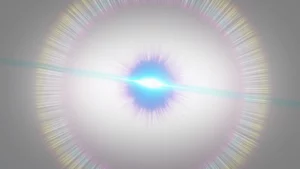He was not a typical father. A Hungarian-born wizard (real or not, I never quite figured out), rock musician, science enthusiast, writer, philosopher, film director, semi-professional cyclist, Zen monk (he lived in a monastery for one year, not speaking), and bohemian, he was cool wherever he went. He was also either brilliant or had a certain knowing that others missed out on.

✅ AI Essay Writer ✅ AI Detector ✅ Plagchecker ✅ Paraphraser
✅ Summarizer ✅ Citation Generator
His parenting style was not demanding—he allowed me and my twin brother to find our own sources of creativity and enjoyment. Even though he was the founder and editor, from 1984 to 1988, of the first haiku journal in the Pacific Northwest, Haiku Zasshi Zo, and a pivotal member of the haiku community, he rarely spoke a word about haiku to me.
Maybe it was his Zen practice, or his adherence of philosophies he read about, but he didn’t want to be one of those fathers who told his children what to do in their future. He was more of a friend to me, usually in a jokey mood—a person who enjoyed pranking those closest to him (such as giving me salt instead of milk in my cereal in the morning on occasion, or putting sticky notes on friends with “kick me” written on it when they weren’t looking). He had a warm smile, a red beard, mostly blond hair, and thick glasses. For most of my life, I remember him being plump—a kind of Santa Claus who didn’t enjoy the North Pole, but the moderate temperatures and culture of the Pacific Northwest.
Though he was a distinguished haiku writer and editor—being the go-to guy for haiku in the Northwest for a long time, a catalyst for American haiku publishing through Haiku Zasshi Zo, and his work being printed in now famous compilations of haiku and haibun—I almost never saw him write haiku. I would look through his journals, which fortunately, he let me read. They were dotted with souvenirs: postcards, leaves, flowers, receipts, and oddities.
He would go on long cycling trips, mostly across different U.S. states (one such trip was from Seattle to Chicago) and areas of Canada. Sometimes he would leave for months, and I only admired him more, as his absence was replaced with my imagination of his adventures.
Though I visited my father only every other weekend after my parent’s divorce, we remained close. The weekends I visited him were a mix of bowling, pizza, video games, camping, cycling, and sometimes reading. He had a huge collection of books on topics ranging from eastern philosophy, world history, to botany, and as many other subjects as you can imagine. He was a renaissance man, curious about almost every discipline, and he did his best to be knowledgeable in each subject he was interested in. My father did not get a full college education, but easily absorbed information—believing in self teaching rather than learning from a teacher. In this way, he was an idealist—sometimes to his detriment. But one could easily say he stayed true to himself, which is something most people cannot claim.
Besides being adverse to institutional education, he was not keen on sending his work out for publication, and declined the honor of lecturing about haiku in Japan on invitation. He seemed more interested in simply writing and its process, and supporting others who wanted to do the same.
Just a short time after my high school graduation, managed in large part because of my father’s help, he passed away in his sleep due to a sudden diabetic attack on New Year’s Eve. When he was found days after his passing, he was smiling, with the Diamond Sutra open by his bed.
Each New Year’s Eve, I am uncertain how I should feel. As the years go on, I feel less sadness, and more in tune with who my father was. I have learned from his good and bad, and this teaching has taught me both to be a man and a haiku poet. This book, a collection of poems by my father and me, is not only heartfelt, I hope, but necessary to honor someone who has sown the seeds of my life.
Follow us on Reddit for more insights and updates.





Comments (0)
Welcome to A*Help comments!
We’re all about debate and discussion at A*Help.
We value the diverse opinions of users, so you may find points of view that you don’t agree with. And that’s cool. However, there are certain things we’re not OK with: attempts to manipulate our data in any way, for example, or the posting of discriminative, offensive, hateful, or disparaging material.